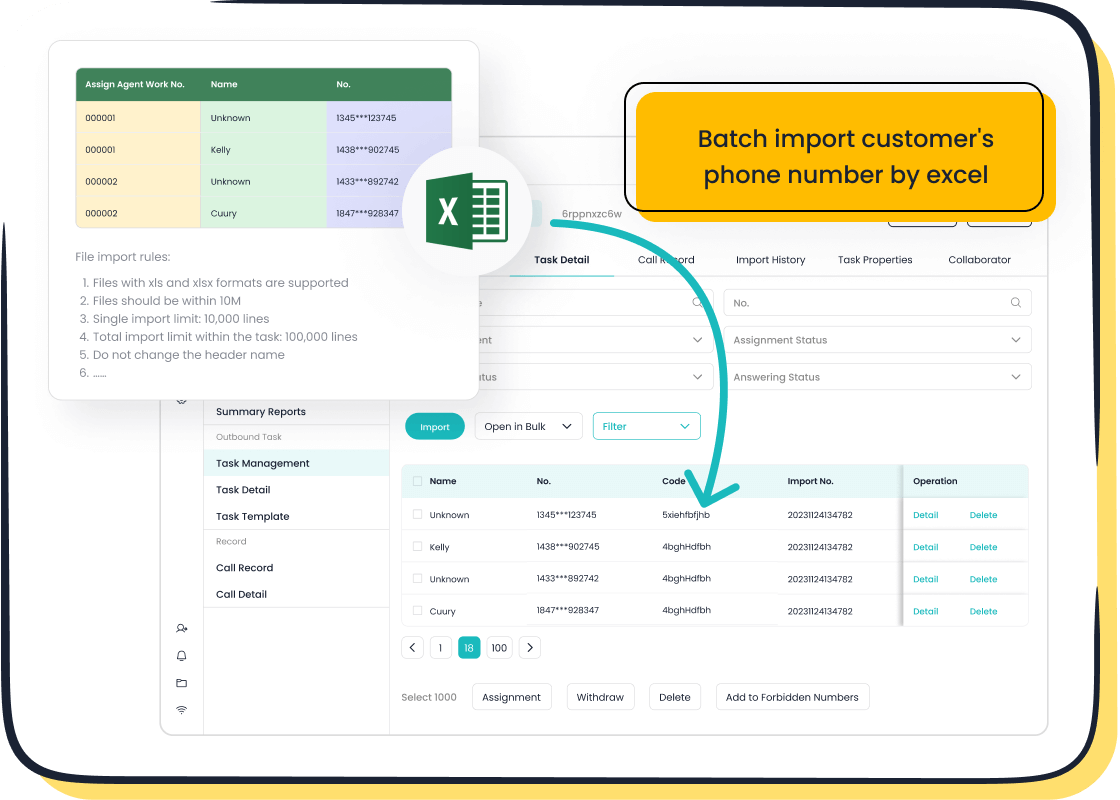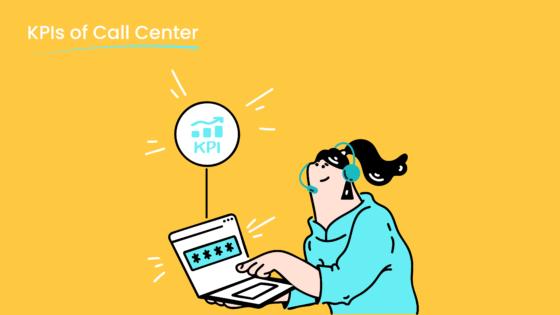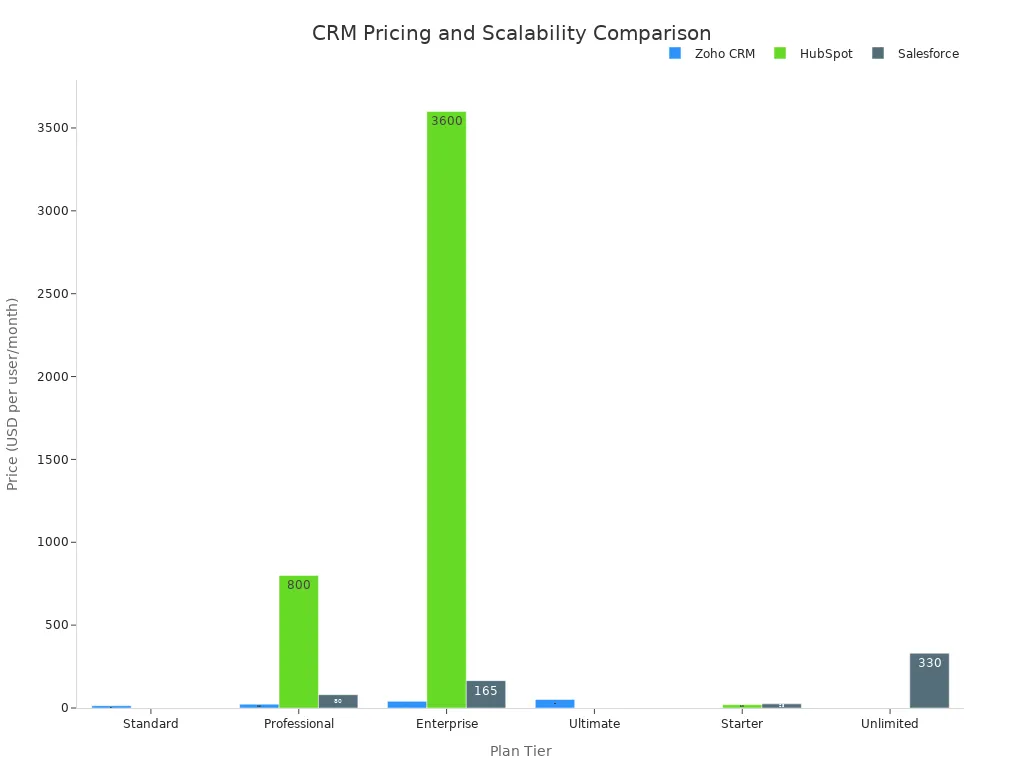small business guide to crm for online store platforms

If you run a small business online, you want the best crm for online store growth and customer happiness. Imagine you sell products on your website and customers message you on chat, email, and social media. Without crm for online store, you might miss messages or forget to follow up. Over half of small businesses already use crm to handle sales and marketing. With crm for online store, you can boost retention by up to 27% and even see a 50% jump in repeat customers. Sobot, with Sobot AI and Sobot call center, helps you give fast, personal service across every channel.
Why CRM for Online Store Matters

Ecommerce Customer Experience
You want your ecommerce store to stand out. Customers expect fast replies, personal touches, and smooth journeys from browsing to checkout. CRM for ecommerce helps you deliver this experience. With CRM, you can track every message, order, and preference. This means you never miss a chance to connect or solve a problem. Sobot’s mission is to help you enhance customer interactions and make every shopper feel valued.
Let’s compare how CRM software changes the ecommerce experience:
| Feature/Benefit | CRM Software | Manual Management |
|---|---|---|
| Personalization | Enables targeted messaging based on customer data | Limited personalization capabilities |
| Integration | Syncs data across platforms for a cohesive experience | Disparate systems lead to inefficiencies |
| Customer Insights | Provides comprehensive insights into customer behavior | Difficult to gather and analyze data |
| Post-Purchase Engagement | Manages ongoing customer relationships effectively | Often neglected in manual processes |
| Efficiency | Automates processes, reducing manual overhead | Time-consuming and prone to errors |
You can see that CRM for ecommerce gives you tools to personalize, automate, and analyze every step of the customer journey.
Key Benefits for Small Businesses
CRM for ecommerce brings real results for small businesses. You gain:
- Improved data management, so you avoid errors and keep customer data accurate.
- Enhanced customer relationships, leading to better customer engagement and higher retention.
- Increased sales performance, with many stores seeing sales conversions rise by 15%.
- Automation of routine tasks, which saves you time and lets you focus on growth.
Many small businesses also report a 30% reduction in response time and a 25% boost in lead nurturing. Sobot helps you achieve a 57% repurchase rate, a Net Promoter Score of 78, and 96% positive feedback. These numbers show how CRM for ecommerce can drive customer retention and loyalty.
Challenges Without CRM
Running an ecommerce store without CRM creates many problems. You may struggle to remember customer details or miss important messages. This leads to impersonal service and lost sales. Here are some common challenges:
| Challenge | Description |
|---|---|
| Inability to personalize customer interactions | Without a centralized system, you may forget important customer details. |
| Limited customer engagement | Hard to track inquiries and feedback. |
| Difficulty in retaining customers | Poor customer data management leads to higher churn rates. |
| Inability to provide timely support | Support teams lack access to information for fast solutions. |
| Limited ability to resolve customer issues | Hard to track and fix recurring problems. |
| Impact on identifying sales opportunities | Missed leads mean lost revenue. |
| Limited targeting of marketing campaigns | Hard to segment audiences and send personalized messages. |
CRM for ecommerce solves these issues by centralizing customer data, automating journeys, and improving every interaction. Sobot’s platform helps you build strong relationships and grow your business.
Best CRM for Ecommerce: Top Solutions
Leading Platforms Overview
Choosing the best crm for ecommerce can feel overwhelming. Many platforms promise to help you manage your online store, but not all fit the needs of small businesses. You want a solution that grows with your ecommerce business, supports your team, and keeps your customers happy.
Here are some of the top crm tools and platforms that online stores use today:
- Voyado: Designed for ecommerce, it focuses on customer data and loyalty programs.
- Klaviyo: Popular for email and SMS marketing, especially with Shopify brands.
- Salesforce Marketing Cloud: Offers advanced analytics for large ecommerce brands.
- HubSpot CRM: User-friendly and great for automation, ideal for startups.
- Gorgias: Focuses on customer service for ecommerce stores.
- ActiveCampaign: Combines CRM with email automation, good for small to mid-sized teams.
- Brevo: An affordable all-in-one CRM for small ecommerce businesses.
- Drip: Lightweight and focused on automation for direct-to-consumer brands.
- Omnisend: Blends email and SMS with ecommerce-specific features.
- Zoho CRM: Modular and customizable, works well for teams with technical support.
Tip: When you compare these platforms, look for features that match your ecommerce needs, such as automation, omnichannel support, and easy integration with your store.
Sobot Voice/Call Center for Ecommerce

Sobot stands out as a powerful choice for ecommerce businesses that want to deliver excellent customer support. You can use Sobot’s all-in-one platform to manage every customer interaction, from live chat and chatbot to voice calls and WhatsApp messages. Sobot’s Voice/Call Center brings unique features that help you serve customers faster and more personally.
- Multilingual support lets you talk to customers in their preferred language, which is important for global ecommerce.
- Omnichannel capabilities mean you can connect with shoppers on WhatsApp, SMS, live chat, and more—all from one place.
- AI-driven automation helps you answer common questions, route calls, and even provide personalized product recommendations.
- Global number availability makes it easy for customers in different countries to reach you.
- Integration with CRM tools allows your team to see customer history and provide tailored support.
- Voicebots handle repetitive tasks, like order inquiries, so your agents can focus on complex issues.
Sobot’s platform also includes a unified workspace for agents, real-time monitoring, and analytics. You can automate outbound calls, track every conversation, and ensure high system uptime (99.99%). Sobot’s ecommerce solution supports integration with major platforms like Shopify and Amazon, so you can manage everything in one place. Learn more about Sobot’s ecommerce and retail solutions here.
Note: Sobot’s voicebot can automate order status checks and recommend products, which saves time and improves customer satisfaction. This is especially useful for ecommerce stores with high volumes of customer inquiries.
Feature Comparison
You want to know how the best crm for ecommerce platforms compare in terms of pricing, scalability, and integration. Here’s a quick look at some of the most popular options for online stores:
| Software | Pricing | Scalability | Integration Capabilities |
|---|---|---|---|
| Zoho CRM | Starts at $14USD/user for Standard | Professional ($23USD/user), Enterprise ($40USD/user), Ultimate ($52USD/user) | Best |
| HubSpot | Plans starting at $20USD/month for Starter | Professional ($800USD/month), Enterprise ($3600USD/month) | Basic |
| Salesforce | Pricing starts at $25USD/user for Starter | Professional ($80USD/user), Enterprise ($165USD/user), Unlimited ($330USD/user) | Best |
| Sobot | Custom pricing, tailored for ecommerce needs | Scalable for small to large ecommerce businesses | Seamless integration with ecommerce platforms |

When you look for the best crm for ecommerce, consider these trends shaping the industry:
- Generative AI for CRM automation now helps you handle customer emails and summaries faster.
- Customer Data Platforms (CDPs) integration gives you predictive insights and unified customer profiles.
- Hyper-personalization lets you tailor every message and offer to each shopper.
- Omnichannel CRM ensures a smooth experience across your website, social media, and even offline.
- Data privacy and security protect your customers’ information as your ecommerce business grows.
Sobot’s platform brings these trends to life. You get AI-powered chatbots, live chat, a ticketing system, and WhatsApp Business API—all in one place. Sobot’s solution helps you automate marketing, unify customer data, and deliver support across every channel. For example, Opay, a leading financial service platform, used Sobot to boost customer satisfaction from 60% to 90% and cut costs by 20%. You can read their story here.
If you want to grow your ecommerce business, the right crm for ecommerce will help you build strong relationships, improve efficiency, and keep your customers coming back.
CRM for Ecommerce: Key Features

Automation and Integration
You want your ecommerce business to run smoothly. Automation in crm for ecommerce helps you save time and reduce errors. With marketing automation, you can set up automated workflows for follow-up emails, order updates, and feedback requests. This means you do not have to send each message by hand. Automated workflows also help with returns, refunds, and product updates. You can connect your ecommerce store with crm software to capture customer data in real time. This e-commerce integration lets you manage accounting, inventory, and product content with less manual work. Many small businesses ask for features like sales and marketing automation, easy-to-use interfaces, and scalability. Ecommerce platform integrations make sure your systems work together, so you can focus on growing your store.
Tip: Automation increases productivity, improves efficiency, and gives your customers a more personal experience.
Omnichannel Support with Sobot
Omnichannel support is key for ecommerce success. You want to reach customers on chat, email, voice, and social media. Sobot’s omnichannel integration brings all these channels into one place. You can answer pre-sales questions 24/7, send personalized recommendations, and solve post-sales issues fast. Scenario-based AI gives tailored responses for ecommerce, making support more relevant. Research shows that businesses with strong omnichannel strategies keep up to 89% of their customers, while others keep only 33%. Omnichannel support boosts retention and profits by making every customer journey smooth. Real-time segmentation and automated workflows help you deliver the right message at the right time.
Reporting and Analytics
You need to know what works in your ecommerce store. Reporting and analytics in crm for ecommerce give you insights into campaign performance, segmentation, and customer journeys. You can see which marketing automation efforts bring the best results. With centralized customer data, you can segment audiences and automate workflows for better targeting. Sobot’s analytics tools help you track every customer interaction and improve your strategies. A table below shows how analytics help optimize your store:
| Key Benefit | Description |
|---|---|
| Analyze campaign performance | Measure how well your marketing automation works. |
| Segment audiences | Use real-time segmentation for targeted offers. |
| Automate marketing tasks | Free up time with automated workflows. |
| Centralized view of customer interactions | Understand customer journeys and improve engagement. |
Choosing CRM for Online Store
Evaluation Checklist
Choosing the right CRM for your online store shapes every customer journey. You want a solution that helps you manage customer data, automate sales, and improve retention. Use this step-by-step checklist to guide your decision:
- Contact and lead management: Organize and track customer data and leads.
- Sales and opportunity management: Look for built-in sales automation features.
- Workflow automation: Automate customer service management and client journeys.
- Customization: Make sure you can adjust the CRM to fit your business.
- Reporting and analytics: Get easy-to-read reports and detailed analytics.
- Email and communication integration: Connect with your customers across channels.
- Employee tracking: Track which accounts your team handles.
- User access control: Set roles for information management.
- Mobile access: Use the CRM on your phone or tablet.
- Integration capabilities: Connect with other business tools.
You should also check for scalability, user-friendliness, and compliance with data regulations like GDPR.
| Essential Item | Description |
|---|---|
| User experience and ease of use | Make sure the interface is easy to use and does not need much training. |
| Pricing and total cost | Check the cost, including hidden fees, and see if it fits your budget. |
| Scalability and growth | Pick a CRM that grows with your business and customer journeys. |
| Vendor support and training | Look for onboarding help and support services. |
| Integration capabilities | Ensure it works with your current software. |
| Data security | Confirm strong security and privacy for customer data. |
Budget and ROI
You want to get the most value from your CRM investment. Calculate ROI by looking at increased sales, improved retention, and enhanced productivity. Track sales volume, time per sale, and the number of deals closed. Lower customer acquisition costs and better customer journeys also boost your return. A good CRM helps you keep more customers and makes every interaction count.
Implementation Tips
Start with a clear plan for your CRM rollout. Train your team so everyone understands the new system. Watch for common challenges like resistance to change, data quality issues, or integration complexity. Make sure your CRM connects with your store and other tools. Use support services and free trials, like those offered by Sobot, to test features before you commit. Focus on data security and privacy to protect customer data at every step of the journey. With the right approach, you can improve customer service management, automate sales, and build stronger customer journeys.
Choosing the right CRM for your online store shapes your success. Look for these key features:
| Key Feature | Description |
|---|---|
| Ease of Use | Simple interface helps you and your team work faster. |
| Customization | Adjust the CRM to fit your business needs. |
| Scalability | Grow your CRM as your store expands. |
| Integration Capabilities | Connect with your favorite ecommerce tools. |
| Superior Customer Service | Give fast, personal support to every shopper. |
Start by listing your business needs, then select a CRM that matches your goals. Test platforms like Sobot with a free trial. You get easy onboarding and helpful support. Take action today—empower your store with the best CRM for ecommerce and watch your customer relationships thrive! 🚀
FAQ
What is CRM for online store platforms?
CRM for online store platforms helps you manage customer data, track orders, and automate messages. You can use it to improve customer service and boost sales. Many small businesses use CRM for online store growth and better customer relationships.
How does CRM for ecommerce improve customer retention?
You can use CRM for ecommerce to send follow-up emails, offer special deals, and track customer preferences. This helps you keep customers happy and encourages them to shop again. Studies show CRM for online store users see higher repeat purchase rates.
Can I integrate CRM with my existing ecommerce platform?
Yes, most CRM for online store solutions offer easy integration with platforms like Shopify, WooCommerce, or Amazon. You can connect your store, sync customer data, and automate tasks. This saves you time and reduces manual work.
Is CRM for online store platforms expensive for small businesses?
You can find CRM for online store options that fit any budget. Many offer free trials or affordable plans. The right CRM helps you save money by improving efficiency and increasing sales, making it a smart investment for your business.
See Also
Best Live Chat Solutions: Shopify Compared to Rivals
Leading Ecommerce Live Chat Applications for 2024
Utilizing Live Chat on Shopify for Retail Success
